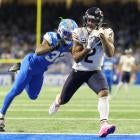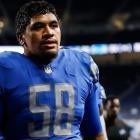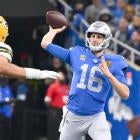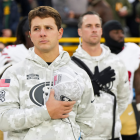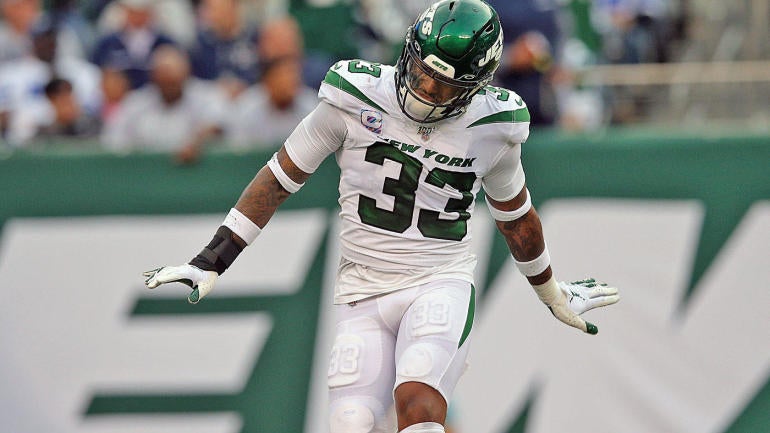
Khalil Mack sought a contract extension from the Raiders in 2018 and made it known that he would not report to training camp without an agreement in place. He forced the team's hand and it led to a trade with the Bears. The trade seemingly opened the proverbial floodgates, as teams became less hesitant to deal star players. Odell Beckham Jr., Antonio Brown and Stefon Diggs were all shipped away for packages featuring draft picks. Brown even dictated one team for whom he would not play.
Le'Veon Bell took it a step further when he sat out the 2018 NFL season in its entirety. Players have become less afraid to request trades and teams are less willing to stand in their way. The NFL has entered the age of athlete empowerment.
How did the league get to this point?
The "Reserve Rule" was enacted by Major League Baseball in 1879. The NFL adopted its own version in 1920. When a player's contract expired, the existing team was granted exclusive negotiating rights. There was no way to play elsewhere without sitting out a full season unless the team traded or sold the player's deal to another team.
In 1947, the NFL replaced its "Reserve Rule" with the "One Year Option Rule." Teams could control a player for one season beyond his expiring contract. It remained this way until 1963.
Wide receiver R.C. Owens spent five years with the San Francisco 49ers before becoming the first NFL player to change teams. His move to the Baltimore Colts in 1962 angered team owners -- 49ers owner Vic Morabito was so upset with the Owens move that he refused to speak to Colts owner Carroll Rosenbloom, according to the Los Angeles Times. It led commissioner Pete Rozelle to institute the "Rozelle Rule," which required a team signing a player who had made himself a free agent to compensate that player's former team by means of players and/or draft selections. If the two parties could agree on fair compensation, then Rozelle would serve as the arbitrator. In an article from Bleacher Report, it was alleged that Rozelle mandated that the Saints surrender two first-round picks in exchange for wide receiver Dave Parks, who had caught only 26 passes the previous season.
The NFL Players Association would eventually challenge the the "Rozelle Rule" in the form of Mackey vs. the NFL, in which NFLPA president John Mackey and several other players sued the league. It was determined that the rule was in violation of the Sherman Act, which condemns restraint of trade. The "Rozelle Rule" was replaced by the Right of First Refusal and Compensation in 1977. A player's original team had the right to match any contract presented to a free agent by another squad. In the event that the player signed with a new team, a more structured plan was created for the original team to be compensated. During this period, the Pittsburgh Steelers won the Super Bowl with a roster solely consisting of their own talent -- players they had originally drafted or signed. It would prove to be the last time it happened in league history. Steelers quarterback Terry Bradshaw felt that team would not have been able to stick together if free agency had existed.
"They would not," Bradshaw told 97.3 The Fan, via CBSSports.com, when asked if the '70s Steelers would have been able to keep all of their great players long enough to win those four Super Bowls in today's era. "That would not have happened. They would have kept very few [Hall of Fame players]."
The NFL followed this model through the 1988 NFL season.
The players went on strike in 1987 over labor disagreements. The league responded by slightly bending the knee through "Plan B." The majority of the roster was protected from poaching but the rest was susceptible to free agency. The final straw would come a few years later when the players sued the league. Free agency and a salary cap were instituted as a part of the 1993 Collective Bargaining Agreement.
Fast forward to the modern day, where Jets safety Jamal Adams, Jaguars edge rusher Yannick Ngakoue and Browns tight end David Njoku have requested trades that have not yet been granted. Over the past year alone, Redskins offensive tackle Trent Williams, Jaguars cornerback Jalen Ramsey and Broncos wide receiver Emmanuel Sanders demanded trades and were dealt.
The mere thought of demanding a trade would not have entered the mind of a player in the early days of the league. NFL players are more empowered than ever to play the game on their own terms.
Where will the progression take the league next?
Want more information on where Adams might land if he is traded? CBS Sports has the latest rumors regarding the situation. 49ers running back Raheem Mostert has also requested a trade.












